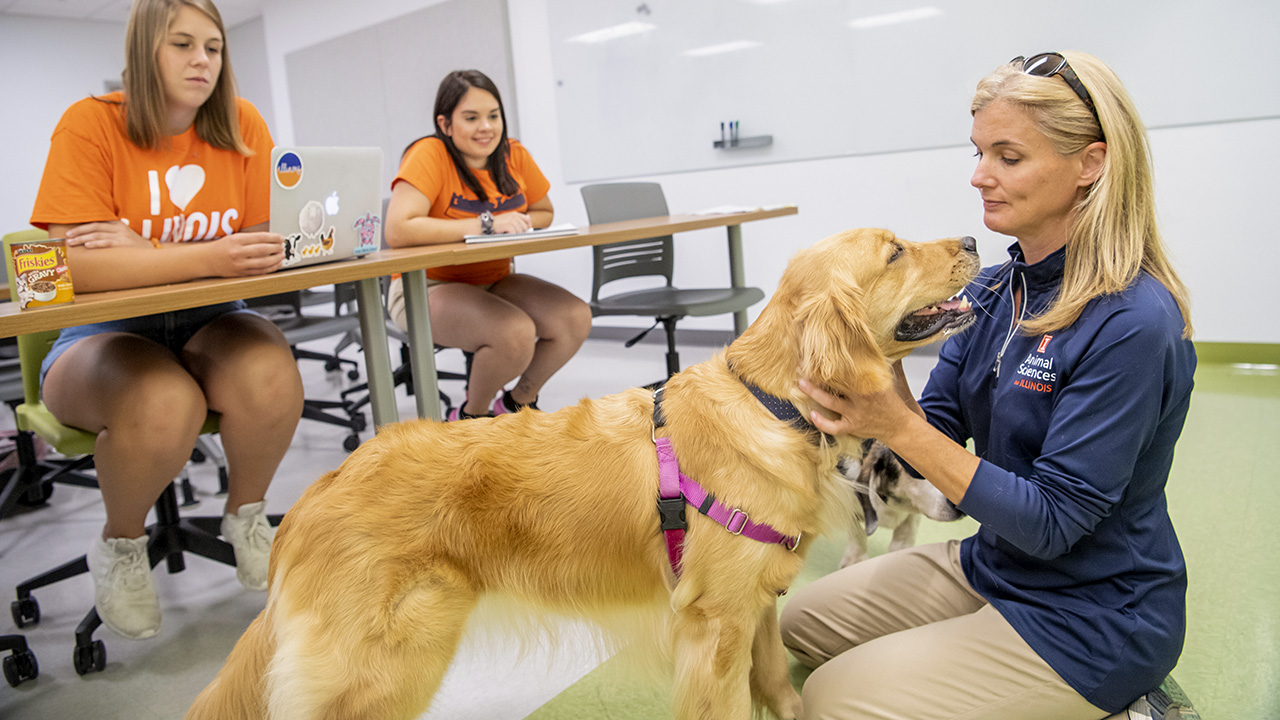Program Requirements
You must be a current student on the University of Illinois Urbana-Champaign campus. Students obtaining their undergraduate or graduate degree are eligible to receive a Companion Animal Nutrition Certificate.
Coursework
In order to obtain the certificate, students will need to successfully complete ANSC 422, Companion Animal Nutrition, and two additional courses of their choosing from the list below.
- Pet Food & Feed Manufacturing (ANSC 424; 3 credits); Section A
- Advanced Companion Animal Nutrition (ANSC 526; 3 credits); Section A
- Pet Food Formulation, Regulations, and Market Trends (ANSC 499; 3 credits); Section MRG
Certificate Enrollment
To declare your desire to complete the Companion Animal Nutrition Certificate, please fill out the Certificate Enrollment Form. Please note that you will need to keep track of your classes and ensure completion of the certificate on your own. There will not be an advisor or faculty member tracking your progress. Please make sure you communicate to your advisor about your desire to complete the certificate when you are planning classes and developing graduation plans.
Certificate Completion
Upon successful completion of certificate requirements, please fill out the Certificate Completion form to alert the certificate coordinator of your completion. Please fill this out during the semester of your last course required for the certificate. The certificate coordinator will check your course work to ensure you have completed all of the requirements, and then a certificate will be either mailed to you or available for pick up. If you complete your last course in the semester that you graduate, please note that we will be mailing the certificate after grades are posted and the completion can be certified.
Course Descriptions
As a current student at Illinois, you must register for section A in each of these courses.
Companion Animal Nutrition (ANSC 422; 3 credits)
Required for certificate and pre-requisite for ANSC 526 - This course will cover the digestive physiology and basic nutritional considerations of companion animals, with primary focus on dogs and cats. Topics will include macronutrient and micronutrient digestion, metabolism, and function, nutritional idiosyncrasies of dogs and cats, unique nutritional needs throughout the life cycle, nutrient needs during exercise, common pet food ingredients, and nutritional sustainability.
Pet Food & Feed Manufacturing (ANSC 424; 3 credits)
Integrates principles of animal nutrition with various aspects pertaining to pet food and animal feed manufacturing. Topics discussed in this course include processing technologies (e.g., extrusion, retorting, baking) involved in the manufacturing of pet foods and animal feeds, principles of diet formulation and nutritional guidelines, and an overview of regulatory affairs, quality control, and good manufacturing practices.
Advanced Companion Animal Nutrition (ANSC 526; 3 credits)
Students will learn how to effectively apply advanced concepts related to pet nutrition and disease, including the metabolism within healthy and diseased dogs and cats, how nutrition may aid in preventing and treating disease, and the science behind pet food formulation and production.
Pet Food Formulation, Regulations, and Market Trends (ANSC 499; 3 credits)
Provides information on the principles of diet formulation, nutritional guidelines and recommendations, regulatory affairs, and recent market trends of the pet food industry.




